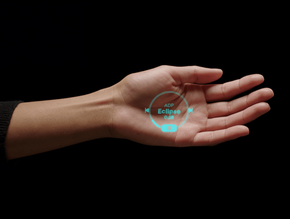AI is smart, but it doesn’t play well with others

When it comes to games such as chess, AI programmes have surpassed the best players in the world. But what has been found harder than competing with humans is collaborating with them.
MIT Lincoln Laboratory researchers sought to find out how well humans could play the cooperative card game Hanabi with an advanced AI model trained to excel at playing with teammates it has never met before. Participants played two series of the game: one with the AI agent as their teammate and the other with a rule-based agent, a bot manually programmed to play in a predefined way.
The challenge for ‘teaming intelligence’
Not only were the scores no better with the AI teammate than with the rule-based agent, but humans consistently hated playing with their AI teammate. They found it to be unpredictable, unreliable and untrustworthy, and felt negatively even when the team scored well.
Ross Allen, co-author of the paper and a researcher in the Artificial Intelligence Technology Group, said the report highlights the nuanced distinction between creating AI that performs objectively well and creating AI that is subjectively trusted or preferred.
“It may seem those things are so close that there’s not really daylight between them, but this study showed that those are actually two separate problems. We need to work on disentangling those,” he went on.
Reinforcement learning for work on real challenges
Humans hating their AI teammates could be of concern for researchers designing this technology to one day work with humans on real challenges — like defending from missiles or performing complex surgery. This dynamic, called ‘teaming intelligence’, is a next frontier in AI research and it uses a particular kind of AI called reinforcement learning.
A reinforcement learning AI is not told which actions to take, but instead discovers which actions yield the most numerical “reward” by trying out scenarios again and again. It is the same technology that has yielded the superhuman chess players. Unlike rule-based algorithms, these AI aren’t programmed to follow “if/then” statements, because the possible outcomes of the human tasks they’re slated to tackle, like driving a car, are far too many to code.
Allen added: “Reinforcement learning is a much more general-purpose way of developing AI. If you can train it to learn how to play the game of chess, that agent won’t necessarily go drive a car. But you can use the same algorithms to train a different agent to drive a car, given the right data. The sky’s the limit in what it could, in theory, do.”






